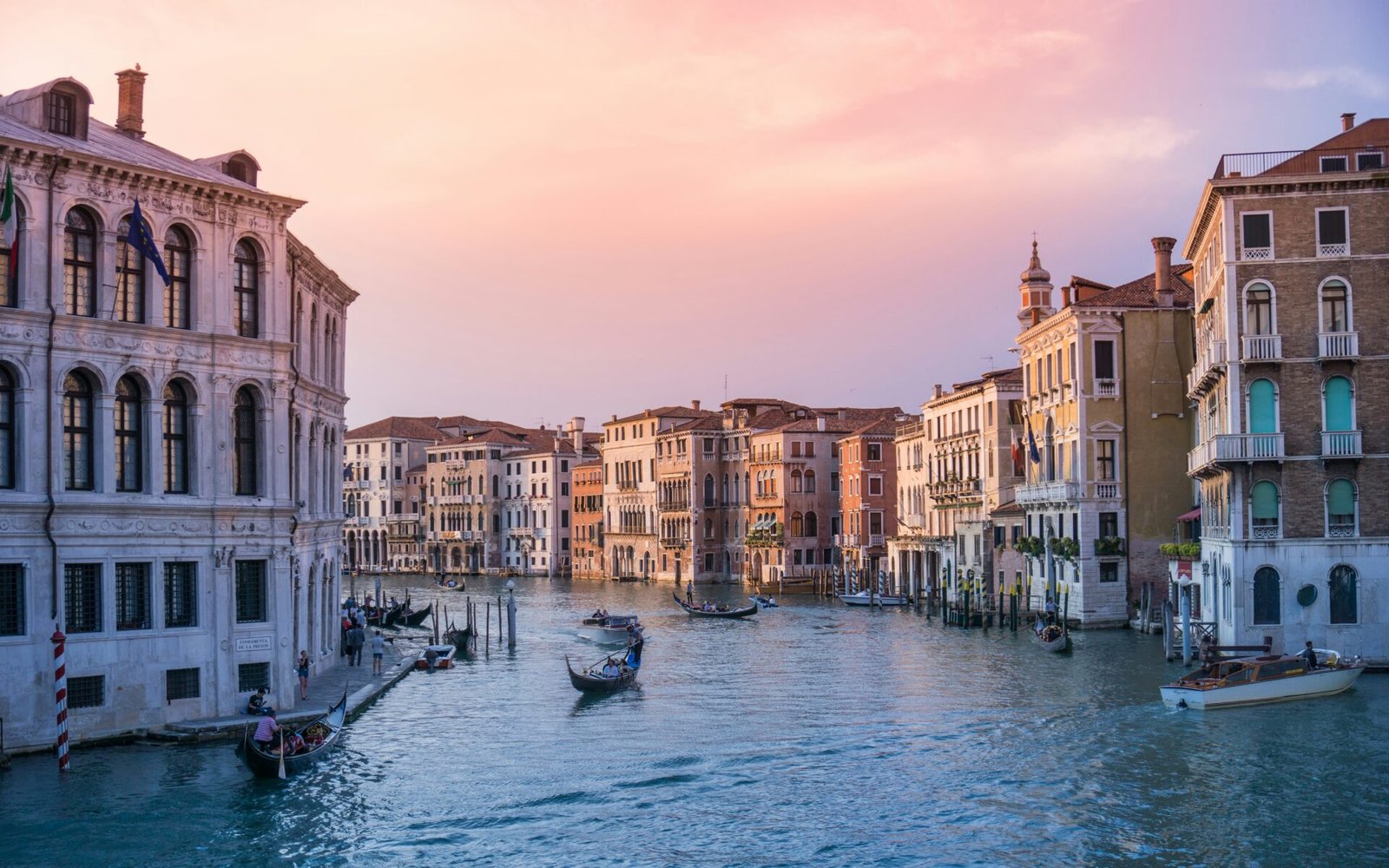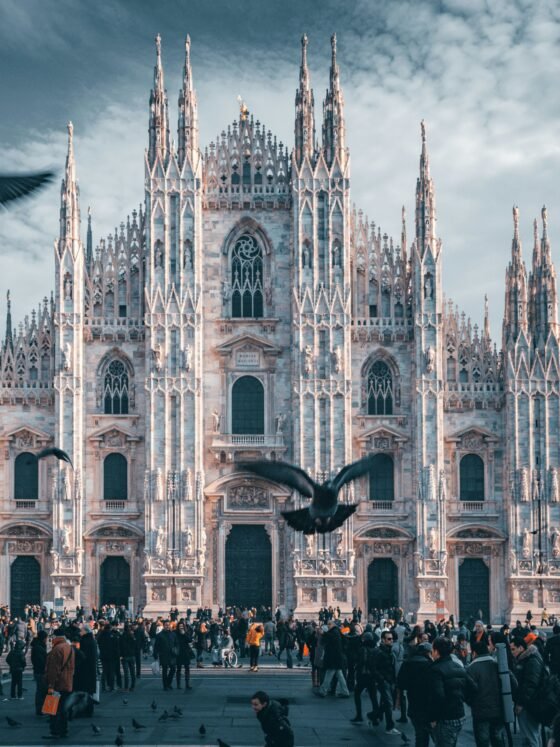Are you considering a move to Italy? This captivating country, with its rich cultural heritage, stunning landscapes, and vibrant lifestyle, is a dream destination for many expats. Whether you’re drawn by the art, history, food, or the Mediterranean climate, moving to Italy can be a fulfilling and life-changing experience. As an expat in Italy, it’s crucial to be well-prepared to ensure a smooth transition. This comprehensive guide covers everything you need to know about a move to Italy, from legal requirements to finding accommodation and integrating into Italian society.
Why Move to Italy?
Italy offers an unparalleled quality of life with its picturesque scenery, historic cities, and world-renowned cuisine. The Italian way of life, centered around family, community, and enjoying the finer things, is highly appealing to many. From the bustling streets of Rome to the serene countryside of Tuscany, there’s a place for everyone in Italy.
Legal Requirements for Moving to Italy
Visa and Residency
For non-EU citizens, a visa is required to enter Italy. Depending on your purpose of stay, you may need a work visa, student visa, or family reunification visa. Upon arrival, you must apply for a residence permit (Permesso di Soggiorno) within eight days.
Health Insurance
Italy has a public healthcare system (Servizio Sanitario Nazionale, SSN) available to residents. Expats are required to have health insurance, either through the public system or a private provider.
After securing a residence permit, expats must register with the local Anagrafe (Registry Office) to obtain a certificate of residency.
Finding Accommodation in Italy
Types of Housing
From city apartments to countryside villas, Italy offers diverse housing options. Popular cities for expats include Rome, Milan, Florence, and Venice.
Renting vs. Buying
Renting is a common option for new arrivals. Lease agreements typically last for four years, but shorter leases are available. Buying property is also an option, with favorable conditions for expats in certain regions.
Working in Italy
Job Market
Italy’s job market varies by region, with more opportunities in the northern cities like Milan and Turin. Key industries include fashion, automotive, and technology. For those planning to move to Italy for work, understanding the local job market is essential.
Work Culture
The Italian work culture values relationships and personal connections. Networking and understanding local business etiquette are crucial for success. As an expat in Italy, it’s important to adapt to these cultural nuances to thrive professionally.
Education in Italy
School System
Italy has a well-regarded public school system, but international schools are also available for expat families. These schools offer curricula in English and other languages, following international education standards.
Higher Education
Italy is home to some of the world’s oldest universities, such as the University of Bologna. The country offers a wide range of higher education opportunities, particularly in the arts and humanities. Expats moving to Italy for education will find numerous prestigious institutions to choose from.
Living in Italy
Cost of Living
The cost of living in Italy varies by location. Northern cities are generally more expensive than southern regions. Housing, transportation, and groceries are major expenses to consider when planning your move to Italy.
Language
While many Italians speak English, especially in tourist areas, learning Italian will greatly enhance your experience and integration. There are numerous language schools and online resources available to help expats.
Transportation
Italy has an extensive public transportation network, including trains, buses, and metros. Owning a car can be useful in rural areas but is often unnecessary in major cities. Expats in Italy will find public transport reliable and convenient.
Healthcare System
Public vs. Private Healthcare
Italy’s public healthcare system is accessible and affordable for residents. Private healthcare is also available and often provides faster service. Expats moving to Italy should familiarize themselves with both options.
How to Access Healthcare
To access the SSN, you need a health card (Tessera Sanitaria), which is issued upon registering with the local health authority (ASL).
Biggest Cities in Italy and Facts for Expats
Rome
Rome, the capital city, is renowned for its historical landmarks such as the Colosseum, Vatican City, and Trevi Fountain. As an expat, you’ll enjoy a vibrant cultural scene, diverse dining options, and excellent public transportation. However, Rome can be quite busy and expensive. Moving to Rome offers a blend of ancient history and modern living.
Milan
Milan is Italy’s financial hub and a global fashion capital. It’s known for its high-end shopping, iconic Duomo, and dynamic business environment. Expats in Milan benefit from a strong job market, particularly in finance and fashion, but should be prepared for a higher cost of living.
Florence
Florence is famous for its art and architecture, being home to masterpieces like Michelangelo’s David and the Uffizi Gallery. The city offers a slower pace of life compared to Rome and Milan, with a strong focus on art, culture, and history. It’s ideal for expats who appreciate a rich cultural experience.
Venice
Venice, with its canals and historic charm, offers a unique living experience. The city is small, making it easy to get around on foot or by boat. However, Venice can be crowded with tourists, and the cost of living is relatively high. Expats in Venice enjoy a one-of-a-kind environment.
Turin
Turin, known for its automotive industry, is a vibrant city with a rich history and stunning architecture. It’s less touristy than other major cities, offering a more authentic Italian experience. The cost of living in Turin is generally lower, making it an attractive option for expats.
Bologna
Bologna is famous for its cuisine and home to the oldest university in the world. The city has a youthful vibe, thanks to its large student population. It’s a great place for expats who enjoy a lively social scene and excellent food.
Cultural Tips for Expats
Italians value politeness and formality, especially in initial interactions. Greetings often involve a handshake or kiss on both cheeks, depending on the region.
Dining Etiquette/h3>
Meals are an important social activity in Italy. It’s customary to start with antipasti, followed by primo (first course), secondo (main course), and dolce (dessert).
Holidays and Festivals
Italy celebrates numerous holidays and festivals, such as Christmas, Easter, and Ferragosto. Participating in these events is a great way to immerse yourself in Italian culture.
Making the Most of Your Life in Italy
Exploring Italy
Italy’s rich history and diverse landscapes offer endless opportunities for exploration. From the ancient ruins of Rome to the canals of Venice and the rolling hills of Tuscany, there’s always something new to discover. Moving to Italy opens up a world of travel and adventure.
Joining local clubs, attending language classes, and participating in community events are excellent ways to meet people and build a social network. Expats in Italy can quickly integrate by engaging in these activities.
FAQs
What visa do I need to move to Italy?
Non-EU citizens require a visa to enter Italy, such as a work visa, student visa, or family reunification visa.
How do I apply for a residence permit in Italy?
Apply for a residence permit (Permesso di Soggiorno) within eight days of arrival at the local police station (Questura).
Is healthcare free in Italy?
Italy offers public healthcare to residents through the SSN, which is affordable and accessible. Private healthcare is also available.
What is the cost of living in Italy?
The cost of living varies by region, with northern cities generally more expensive than southern areas. Major expenses include housing, transportation, and groceries.
Do I need to speak Italian to live in Italy?
While many Italians speak English, learning Italian is highly recommended for better integration and a more enriching experience.
How do I find accommodation in Italy?
Accommodation can be found through online portals, real estate agents, and local classifieds. Renting is common for new arrivals, but buying property is also an option.
Conclusion
Moving to Italy as an expat can be a rewarding adventure filled with new experiences and opportunities. By understanding the legal requirements, finding the right accommodation, securing employment, and embracing the Italian culture, you can make the most of your new life in this beautiful country.

